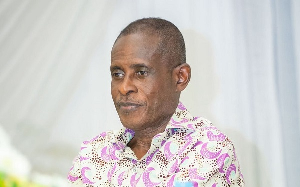Youth Rise International, a Non-Governmental Organisation with focus on poverty eradication through education and decent work, has called on the government to show more political commitment to tackling human trafficking and modern-day slavery.
It said while it recognised the effort of the current and previous governments in passing required laws, putting in place institutional set-ups and allocating some resources to combat human trafficking, more could be done through political commitment to end human trafficking by 2025.
In a statement signed by its Executive Director, Mr David Awusi and copied to the Ghana News Agency (GNA) in Cape Coast to commemorate this year’s World Day Against Trafficking In Persons, the NGO said human trafficking could become history by 2025 if it was given high political commitment.
It also called for integrated social protection programmes to be expanded and targeted more at the poor and socially-excluded in rural communities to address poverty, which was the root cause of human trafficking.
It further urged the Ministry of Information and National Commission for Civic Education (NCCE) to incorporate human trafficking awareness messages in their COVID-19 awareness campaign at national and community levels.
The President of Ghana should hold periodic media sessions to sensitize Ghanaians on human trafficking once every month.
Additionally, it demanded intensification of social media campaigns, including using videos and incorporation of a hotline number for reporting and referral of human trafficking cases from the Human Trafficking Secretariat.
“We strongly believe that if these demands are implemented amidst other ongoing programmes together with citizens’ commitment and action, there shall be no human trafficking in Ghana in five years which will align with United Nations target”, the statement said.
More than 40 million people are trapped in modern slavery globally and in Ghana, over 100,000 people are victims of modern slavery and human trafficking.
“On Lake Volta, over 49,000 children are engaged in work, of this number, over 21,000 are engaged in hazardous labour – work that is dangerous to their lives”, the statement added.
Regional News of Tuesday, 4 August 2020
Source: GNA
Political commitment needed to end human trafficking - NGO
Opinions












